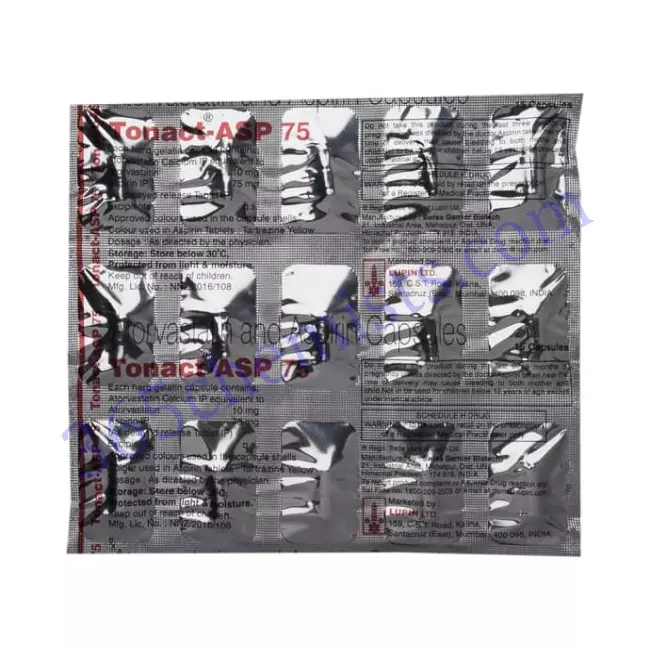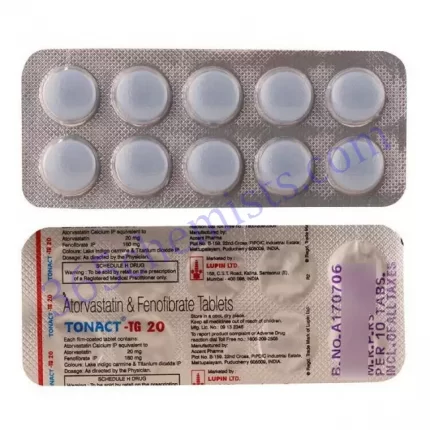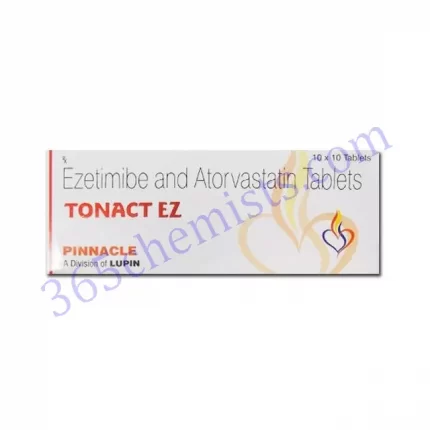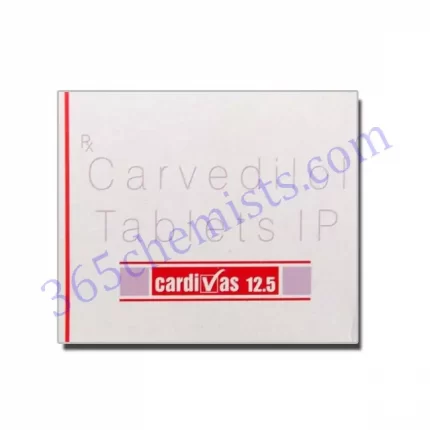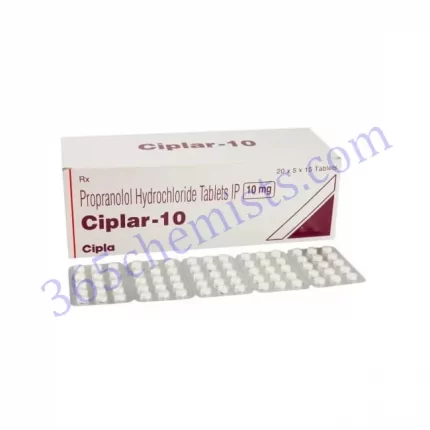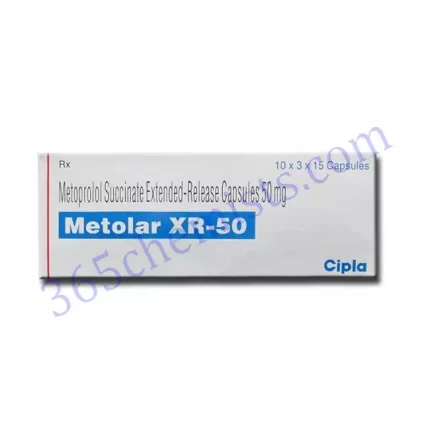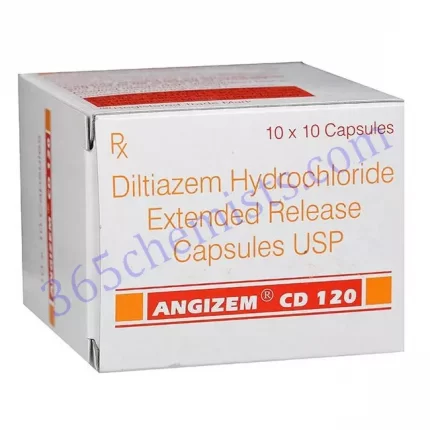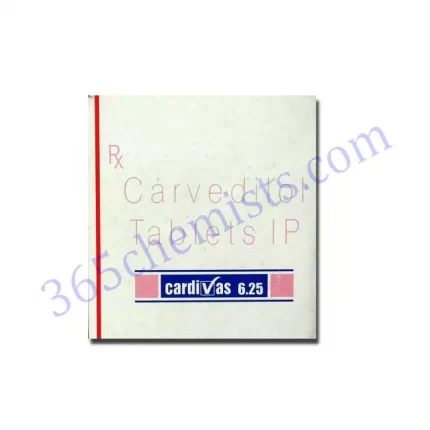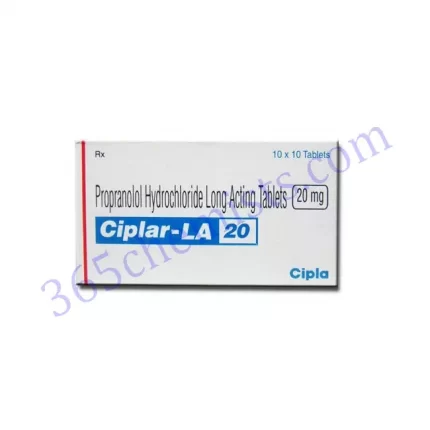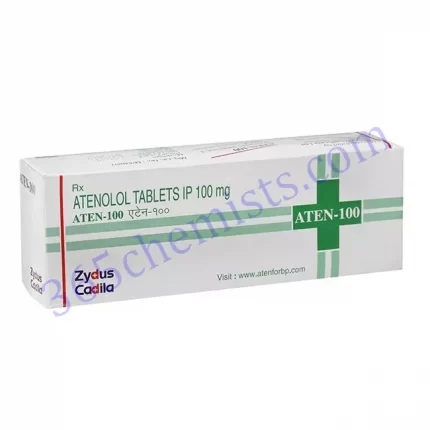Tonact ASP 75mg Capsule: A Comprehensive Description of Atorvastatin/Aspirin Combination
Atorvastatin and aspirin are the two active components that are included in a single dose of the combination medication known as Tonact ASP 75mg Capsule. This combination is utilised for the treatment of cardiovascular conditions, more specifically for people who are at an increased risk of developing heart disease or stroke. Atorvastatin, which is classified as a statin and is prescribed to patients in order to reduce their cholesterol levels, contrasts with aspirin, which is classified as a nonsteroidal anti-inflammatory drug (NSAID) and is taken in order to avoid the formation of blood clots. Together, they offer a dual strategy for lowering the risk factors associated with cardiovascular disease.
Composition:
There are 10 milligrammes of atorvastatin and 75 milligrammes of aspirin in one Tonact ASP 75mg Capsule. The capsule contains, in addition to the active ingredients, a number of other inactive components that are essential for the process by which the capsule is formulated and manufactured.
Mechanism of Action:
The action of atorvastatin is achieved through the inhibition of the enzyme HMG-CoA reductase, which plays a role in the production of cholesterol in the liver. It accomplishes this by lowering cholesterol production, which in turn helps reduce LDL cholesterol levels. On the other hand, aspirin prevents the body from producing a number of chemicals that are necessary for blood clotting by acting as an inhibitor. It does this by inhibiting the formation of blood clots, which in turn helps to lower the risk of cardiovascular events like heart attacks and strokes.
Indications:
It has been determined that the Tonact ASP 75mg Capsule is beneficial for the management and prevention of cardiovascular conditions. People who have a history of cardiovascular disease, such as coronary artery disease or stroke, or those who are at a high risk of developing these conditions due to factors such as diabetes, hypertension, or smoking are typically the ones who are given a prescription for this medication. The combination is adapted to meet the requirements of the specific patient by taking into account a variety of factors, including the patient’s cardiovascular risk, medical history, and response to earlier treatments.
Dosage and Administration:
It is possible for the recommended dosage of Tonact ASP 75mg Capsule to change depending on the specific condition of the patient as well as their response to treatment. It is essential to take the capsule in the manner recommended by the medical professional and adhere to the dosage that has been prescribed. One capsule containing 10 milligrammes of atorvastatin and 75 milligrammes of aspirin should be taken orally once daily. This is the typical recommended dose for adults. The capsule should be taken with a full glass of water and should be swallowed whole; it can be taken either with or without food. In order to ensure that the medications are released in the correct manner, it is critical not to crush or chew the capsule.
Related Product
Tonact 5 Tablet
Tonact 10 Tablet
Tonact 20 Tablet
Tonact 40 Tablet
Tonact 80 Tablet
Tonact D 10 Tablet
Tonact D 20 Tablet
Tonact EZ Tablet
Tonact Forte Tablet
Tonact Plus Tablet
Tonact ASP 150 Capsule
Tonact ASP 75 Capsule
Tonact TG 10 Tablet
Tonact TG 20 Tablet
Contraindications and Precautions:
Patients who have a hypersensitivity to atorvastatin, aspirin, or any of the other components of the Tonact ASP 75mg Capsule should not take the medication because it is not safe for them. Patients who currently have active bleeding disorders or who have a history of gastrointestinal bleeding should not use this medication. Patients who have a history of liver or kidney dysfunction, peptic ulcers, or asthma should be treated with caution when taking this medication. In order to prevent potentially harmful side effects or drug interactions, the healthcare provider should be made aware of any preexisting medical conditions or medications that are currently being taken by the patient.
Adverse Effects:
It is possible that Tonact ASP 75mg Capsule will cause adverse effects in some people, just like any other medication. Symptoms of the gastrointestinal tract, such as indigestion, heartburn, and stomach upset, are among the most frequently reported adverse effects. The use of aspirin has been linked to an increased risk of bleeding, most notably in patients with a previous medical history of bleeding disorders. Even though they are uncommon, serious adverse effects such as problems with the liver or kidneys, allergic reactions, or bleeding in the digestive tract could occur. It is imperative to provide prompt notification to the healthcare provider of any side effects that are unusual or severe.
Drug Interactions:
Tonact ASP 75mg Capsule may have an interaction with other medications, such as antiplatelet drugs, anticoagulants, and nonsteroidal anti-inflammatory drugs (NSAIDs). It is essential to keep the healthcare provider informed about any and all medications that are being taken, including over-the-counter medicines and dietary supplements made from plants, in order to prevent dangerous drug interactions. Should it become necessary, the healthcare provider has the ability to alter the dosage or select an alternative form of treatment.
Conclusion:
The Tonact ASP 75mg Capsule is a combination medication that is used for the prevention of cardiovascular conditions as well as their management. It contains the drugs atorvastatin and aspirin. It accomplishes this by lowering cholesterol levels and preventing the formation of blood clots, providing a holistic approach to lowering the risk factors for cardiovascular disease. Before beginning treatment with this medication, it is essential to confer with a qualified medical professional who can evaluate the specific requirements of the patient, as well as determine the correct dosage and treatment strategy. It is essential to perform routine monitoring of lipid profiles, liver function, and overall response to treatment in order to accurately assess the efficacy of the medication and effectively manage any potential adverse effects. In addition to taking prescribed medications, making changes to one’s lifestyle—such as adopting a heart-healthy diet, becoming more physically active on a consistent basis, quitting smoking, and sticking to one’s medication regimen—should be done in order to improve one’s cardiovascular health and lower the risk of future cardiovascular events.

